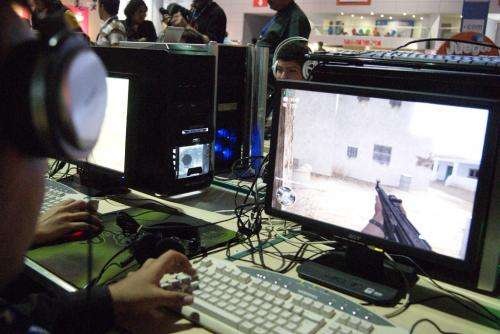Gaming benefits to be proven in new study

Video gamers are better at multitasking and maintaining concentration than the average population, upcoming WA research hopes to prove.
ECU School of Psychology and Social Science PhD student James Brooks is recruiting candidates for two consecutive studies that will test the cognitive abilities of people who play first-person-shooter video games such as Call of Duty, at least four hours a week and non-gamers.
He will also see if teaching people to play these games will improve their cognition.
For the first study, two cohorts of participants, one set of gamers and one non-gamers, will complete two 20 minute sessions of the Multi-Attribute Task Battery.
The first session is a computer task developed by NASA for testing pilot's multitasking abilities and the second, a 60 minute sustained attention computer task in which participants must react as quickly and as accurately as possible to targets on a screen.
The non-gamers will then play games for 10 one hour sessions over four weeks in one of two training regimes, one of which Mr Brooks has designed.
Afterwards they will take the same cognitive assessments as in the first study, with a three-month follow-up, to see how effectively someone could improve their cognitive abilities and what training method is best.
Mr Brooks says past research has shown playing this type of video game can improve reaction times, accuracy in target detection, and the ability to track a higher number of moving objects, but his research will test subjects for longer periods (as most gamers play an average of four hours a day) and trial a new training technique.
He says his research could lead to new screening procedures and training programs for employers and workers in high attention jobs.
"The research has potential benefits for people who have to perform tasks that require fast decision making and detecting important targets, for long periods of time, such as driving, piloting aircraft, and security or radar monitoring," he says.
Mr Brooks says it could also change the perception of gaming to the public.
"I'm hoping it will show the benefits outweigh any potential for violent behaviour," he says.
"It's been greatly exaggerated by the media when there are many other issues at play behind people who commit violent acts. The public have been misinformed."
















